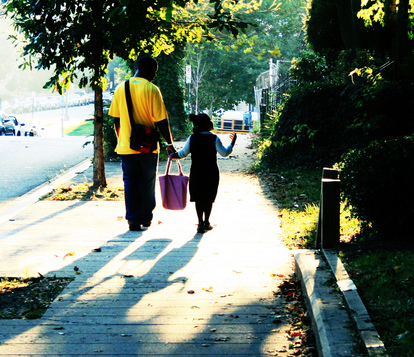0 Comments
I often write for KSL on topics such as infertility, parenting or general mental health. This article was originally published by KSL, and I hope you find it useful.
How many times have you heard if you just … “go on vacation, lift your legs above your head, adopt, relax — you’ll get pregnant.” Those suggestions are hard enough to get out of your head, but how do you know when you’re ready to get off the treatment merry-go-round and move to third-party reproduction, change paths to adoption, or live child free? Ending treatment can feel like giving up. You hear things like, “But my sister’s roommate's cousin got pregnant after her 6th IUI.” It’s just right around the corner, right? You’ve likely invested a significant amount of money and emotional energy into building your family. It dominates your thoughts and it feels awkward to turn the other direction. If you choose to end treatment and move toward adoption, you may feel that you are betraying the imagined biological child in your mind. Just because there are lots of options doesn’t mean you have to take them. If you are considering ending treatment, you might notice an uptick in anxiety. This is normal. Spend time noticing the feelings that are coming up for you. Consider journaling or talking them through with someone you trust. Allow for feelings of disappointment and regret as well as feelings of hope. Take time out to decide For some, taking a break will help in making a sound decision. For others, taking a break just means that time is ticking away. Consider giving yourself a window of time, agree that you will set aside a month to explore your feelings about a family building path. When the time is up, reassess your thoughts and feelings. Evaluate Consider how much infertility treatment has impacted you to this point. This is important. Think in terms of physically, financially, emotionally, spiritually. Does the idea of another round of IVF turn your stomach? Is your partner burned out? How is your support system — can you continue to rely on them if treatment proceeds? What is it you really want? Accurately articulate your wishes regarding parenthood. Is pregnancy required to be part of your experience? For example, when you send out your wish for the future, is it “I want to be pregnant” or is it “I want to be a mother?” Many women feel very strongly about experiencing pregnancy; others, as treatment progresses, feel that their priority is parenting a child and therefore pursue other options of family building. Undoubtedly, this also changes as you move through infertility treatment. If you are considering stopping treatment, this is a good time to reassess your thoughts and feelings about how to build your family. Take control You and your partner are responsible for choosing when to stop. A physician can provide recommendations, and probability of success. It is up to you to decide how to use this information. It’s common for couples to feel compelled to keep moving along the treatment track, and this is often successful. But, each step of the way, keep in mind you are in charge of making the decisions. Infertility offers little in the way of feeling in control. But by making decisions about what testing or treatment to pursue, you can regain this control. Importance of ritual Ritual is an important part of healing. All cultures throughout history have understood this. When someone marries, has a birthday, dies, we mark the occasion with a variety of traditions. Part of what makes infertility so isolating is that it lacks ritual. When someone miscarries, there isn’t a way, within our larger culture, to mark this loss. Similarly, when a couple decides to stop treatment (which inevitably means not having a biological child), there isn’t a way to recognize what a shift this is. If you decide to end treatment, you may consider marking this decision in your own way. Maybe this means ceremonially getting rid of all the paperwork, ovulation predictor kits, pregnancy tests that accompanied you through treatment. Perhaps this means writing a letter to the biological child you’ve always had in your mind. Maybe this means announcing to the world your joy at pursuing adoption. Do what feels good for you. Deciding when enough is enough is not an easy decision. It can often be more difficult to decide to stop treatment than it was to start treatment. Be kind to yourself during this transition, and give yourself the time and attention needed to feel at peace. |
Archives
March 2024
Categories
All
|


 RSS Feed
RSS Feed